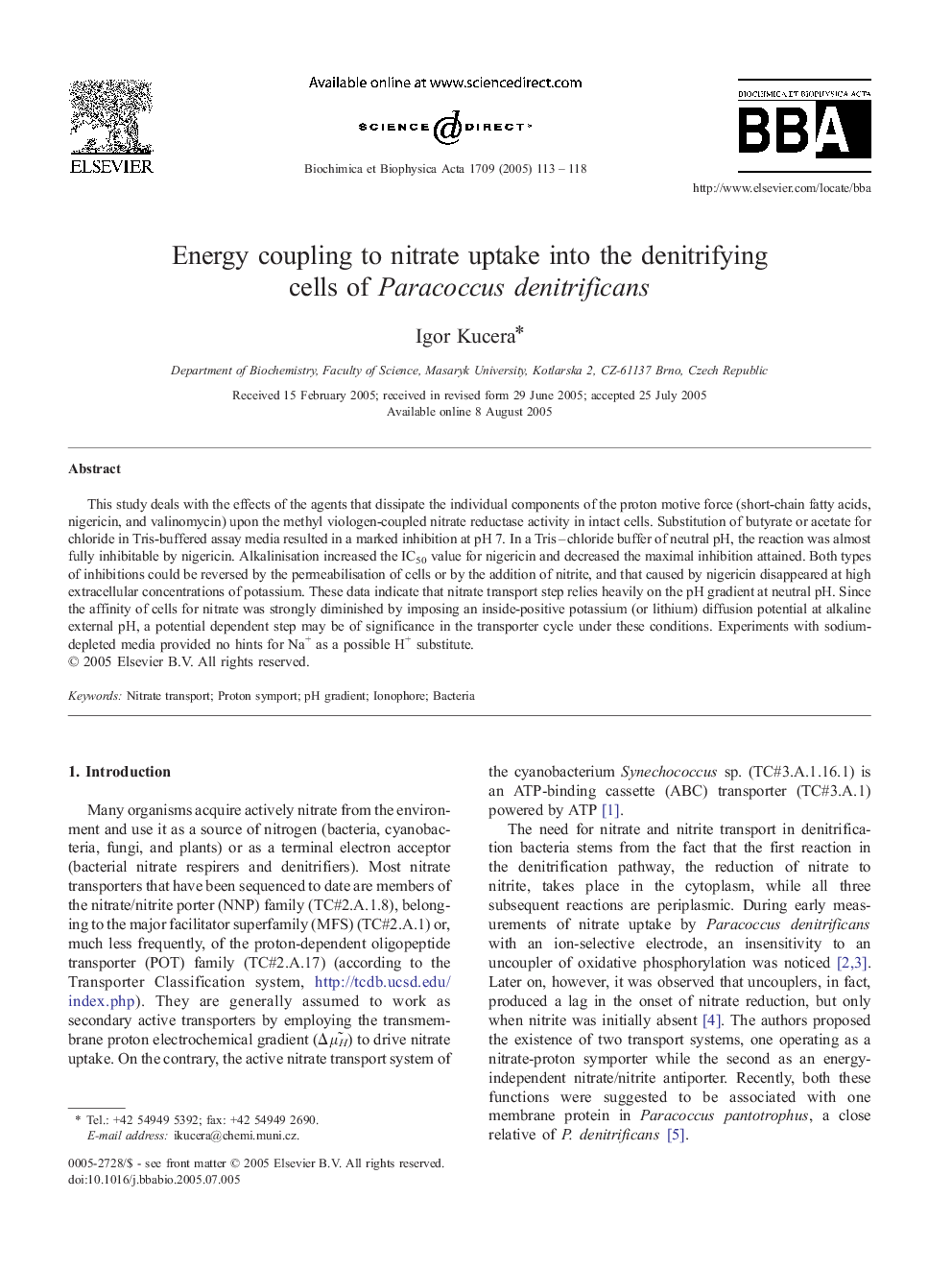| Article ID | Journal | Published Year | Pages | File Type |
|---|---|---|---|---|
| 10796078 | Biochimica et Biophysica Acta (BBA) - Bioenergetics | 2005 | 6 Pages |
Abstract
This study deals with the effects of the agents that dissipate the individual components of the proton motive force (short-chain fatty acids, nigericin, and valinomycin) upon the methyl viologen-coupled nitrate reductase activity in intact cells. Substitution of butyrate or acetate for chloride in Tris-buffered assay media resulted in a marked inhibition at pH 7. In a Tris-chloride buffer of neutral pH, the reaction was almost fully inhibitable by nigericin. Alkalinisation increased the IC50 value for nigericin and decreased the maximal inhibition attained. Both types of inhibitions could be reversed by the permeabilisation of cells or by the addition of nitrite, and that caused by nigericin disappeared at high extracellular concentrations of potassium. These data indicate that nitrate transport step relies heavily on the pH gradient at neutral pH. Since the affinity of cells for nitrate was strongly diminished by imposing an inside-positive potassium (or lithium) diffusion potential at alkaline external pH, a potential dependent step may be of significance in the transporter cycle under these conditions. Experiments with sodium-depleted media provided no hints for Na+ as a possible H+ substitute.
Related Topics
Life Sciences
Agricultural and Biological Sciences
Plant Science
Authors
Igor Kucera,
